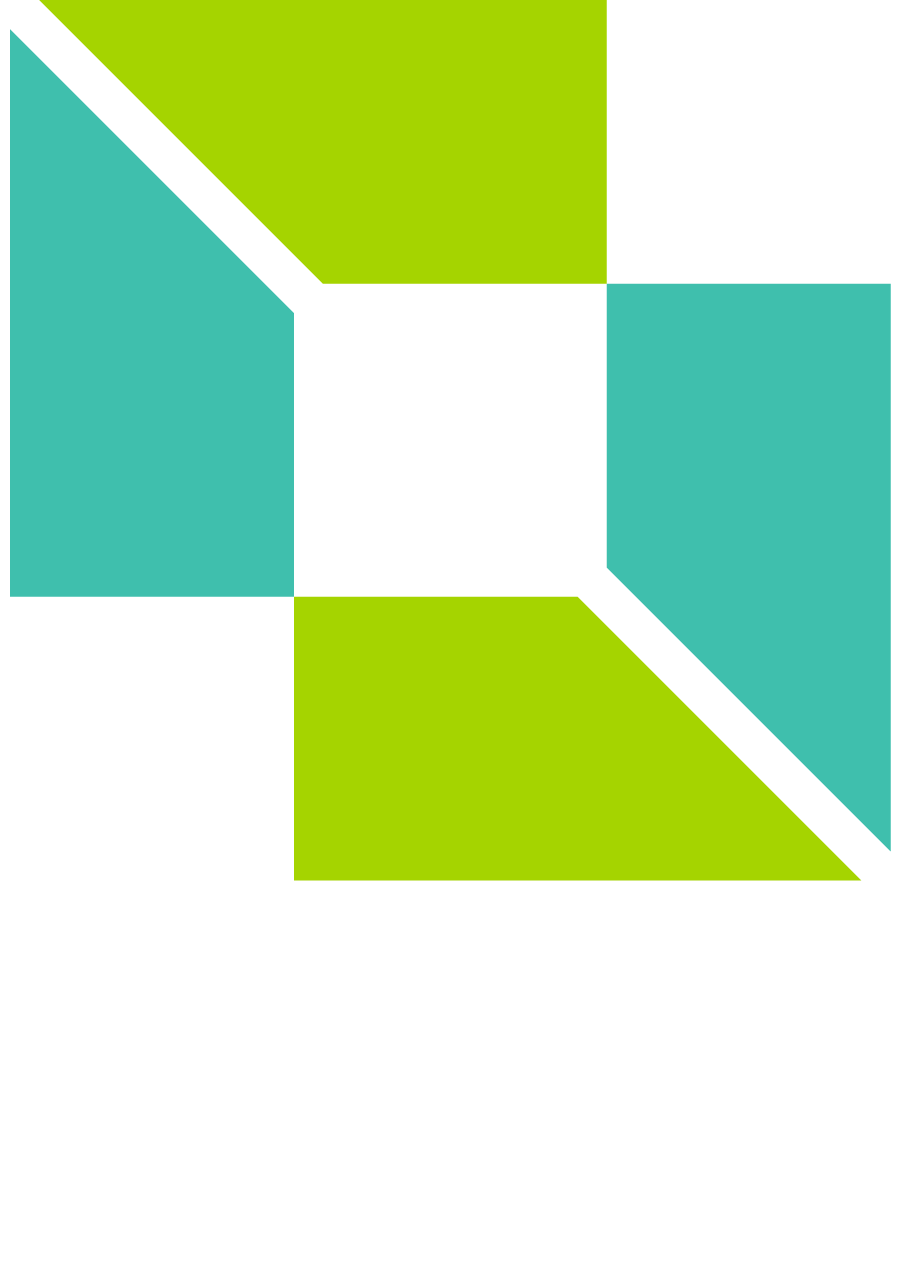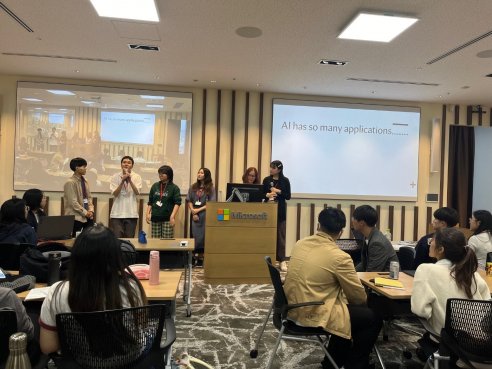NUCB Students Team Up with Singapore's NUS College for Cross-Cultural Project
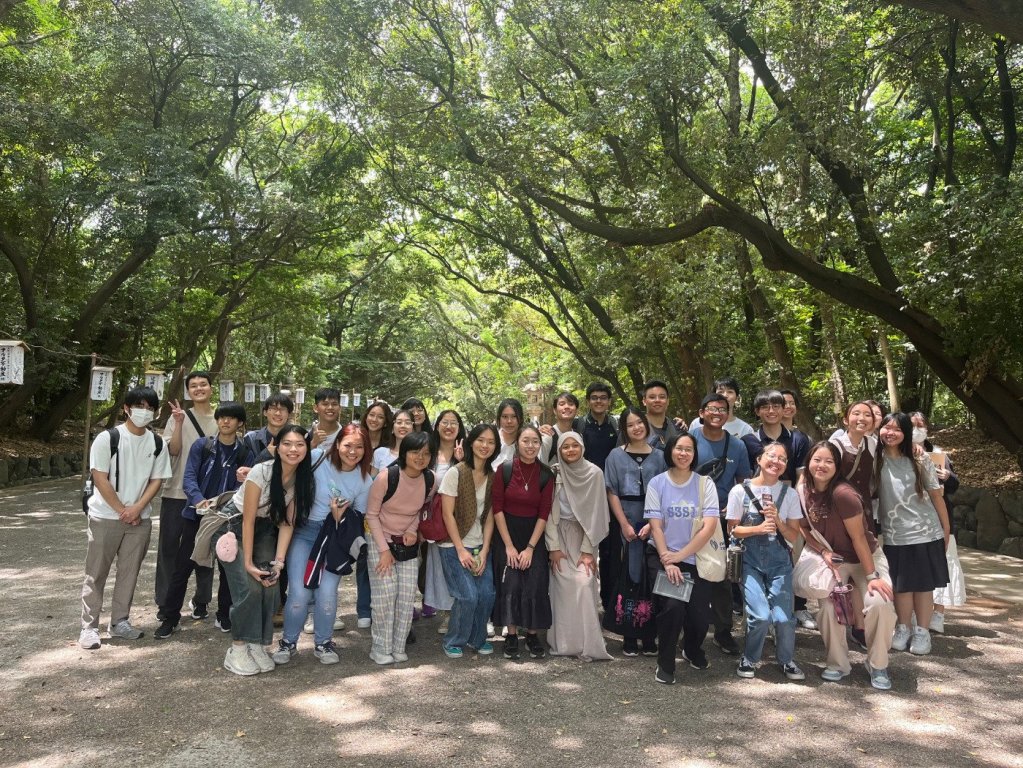
Eight students from Nagoya University of Commerce and Business (NUCB) recently joined forces with 25 peers from the National University of Singapore's (NUS) honors college, NUS College. This collaborative project brought together students from Japan and Singapore to explore the themes of "Tourism" and "Artificial Intelligence (AI)" in Nagoya and Tokyo.
The project kicked off on May 26th in Nagoya, where student groups visited Atsuta Jingu Shrine. Here, they took the initiative to interview tourists, asking them about their motivations for visiting the greater Nagoya area. Equipped with this firsthand visitor feedback, the student teams then delved into brainstorming ways to improve inbound tourism for Nagoya. To gain valuable industry insights, they also had the opportunity to discuss their ideas with a local travel agent.
This project on May 26th was just the first leg of the collaboration. The student teams reconvened in Tokyo on May 31st to continue their exploration of the chosen themes.
AI Challenge at Microsoft Japan
On May 31st, the NUCB and NUS students traveled to Microsoft Japan in Tokyo. After touring the facilities, the teams were presented with a challenge: develop a creative concept using Generative AI. Each group then presented their ideas to a panel of employees. The students came up with a variety of innovative solutions, showcasing the potential of Generative AI. These included:
- Smart glasses to aid medical professionals and forensic investigators in image analysis.
- Smart guide dogs equipped with AI to assist visually impaired people.
- A personalized career assistant app for college students to find suitable job opportunities.
- A travel app that curates customized travel experiences for individual tourists.
- A language app that facilitates conversations using endangered or old languages.
Despite some language barriers, all NUCB students actively participated in discussions and presentations. The experience not only spurred students on for their language learning, but also boosted their confidence in interacting with students from diverse backgrounds.
This cross-cultural project provided a valuable opportunity for students from both universities to exchange ideas, develop their teamwork skills, and gain a deeper understanding of tourism and artificial intelligence. The challenge at Microsoft Japan pushed their creativity and problem-solving abilities, leaving them with an appreciation for the potential of AI technologies.
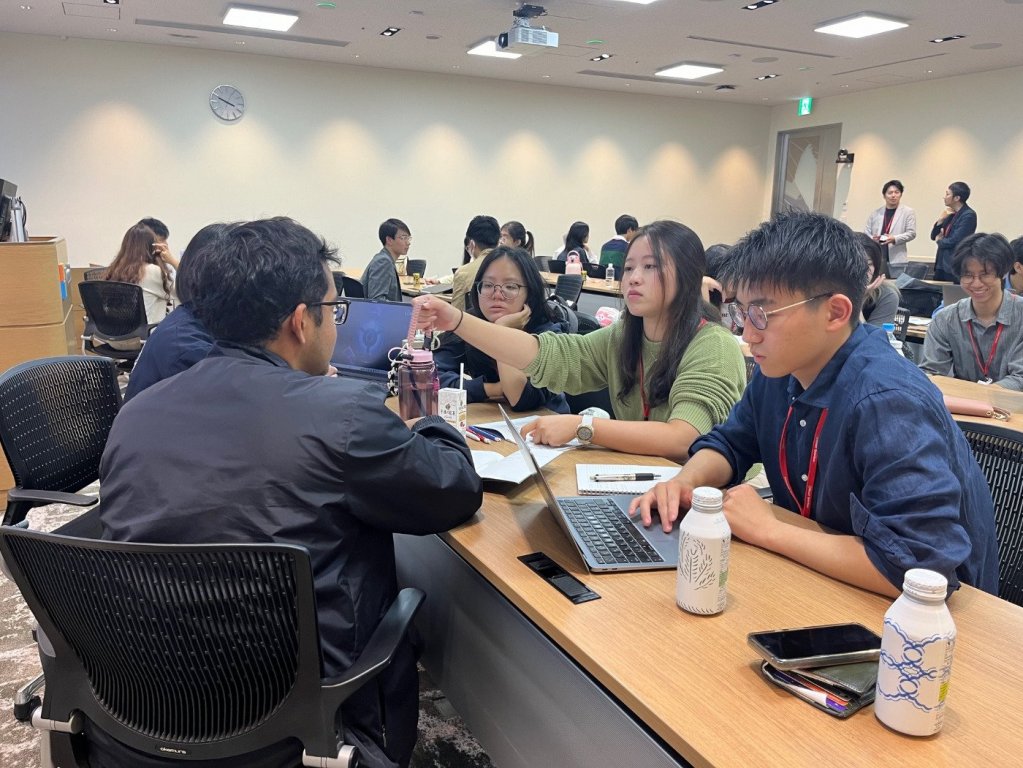
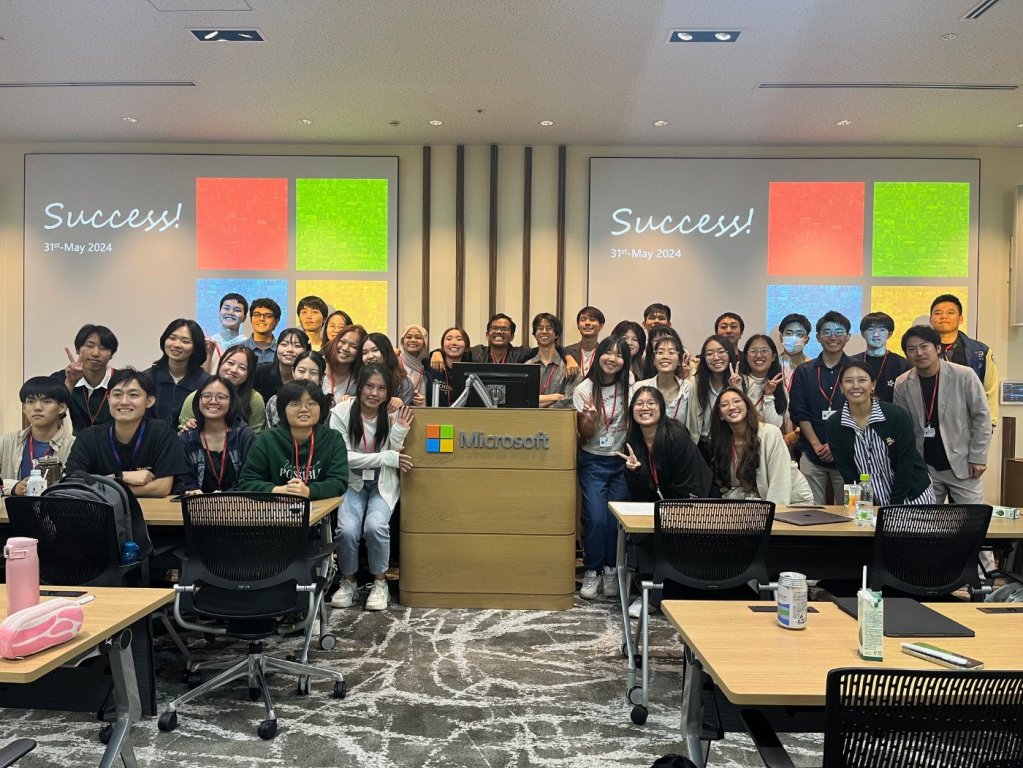

 Download
Download
 Infosession
Infosession
 Application
Application
 Open Campus
Open Campus
